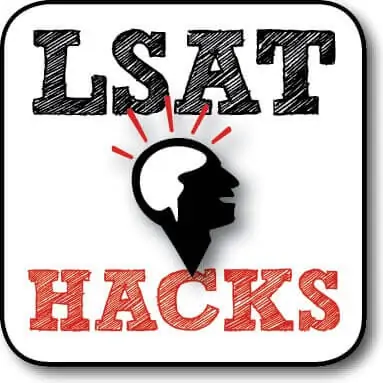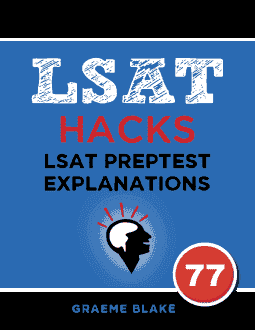QUESTION TEXT: Everyone should have access to more than one newspaper…
QUESTION TYPE: Flawed Reasoning
CONCLUSION: Some important stories wouldn’t get adequate coverage if there were only one newspaper.
REASONING: Not every story in a newspaper can get full coverage.
ANALYSIS: There are two elements in this question:
- Argument structure
- A concept shift.
First, argument structure. The conclusion of the argument is not clear. The first sentence is a conclusion. You might call it the main conclusion, you might not. However, it’s not where the weak link is. There is a second conclusion at the end of the argument, and it’s not well supported. Since this is a flaw question, you need to be focussing on the flawed section of the reasoning.
You can tell final sentence is also a conclusion because the sentence beforehand says “Since…..and”. This can be read as “Since A, and because B, therefore some important stories….”. English often omits important structural words if they’re implied. I’ve italicized the words that are merely implied by the English.
Why do I say this is the conclusion to focus on, and not the first sentence? Because the author doesn’t even try to prove the first sentence. They haven’t shown that people need to read the news or need a complete perspective. Only the final sentence receives a chain of statements attempting to prove it. So while the first sentence is interesting context, it’s ultimately fluff. Stating it isn’t a flaw, because the actual argument is in the second sentence.
The flaw is a shift in terms. It’s so subtle you probably missed it. The conclusion is that “not all important stories will be fully covered”. The evidence is that “Not all stories will be fully covered”.
The author dropped the word “important”. But it’s possible that every important story does receive coverage from all sides. Note also that I simplified the language to “not all” in both cases. It’s logically equivalent, but it’s easier to see the term switch the way I wrote it.
___________
- CORRECT. See the analysis above. It’s possible that, say, there are 100 stories, 5 of them very important. And the 20 most important stories all receive full coverage. So every very important story is covered.
- The author wasn’t saying that two papers guaranteed coverage. The author was saying that having only one paper guaranteed failure. The author’s focus was on avoiding certain failure; success still isn’t guaranteed.
- This didn’t happen at all. The author didn’t recommend that newspapers change. Their recommendation was about what individuals should do.
- On the LSAT, you need to interpret statements literally. And if a statement is insane, interpreted literally, then the answer is almost certainly wrong.
This answer means that every human has access to every American newspaper, every French newspaper, every Mongolian newspaper, every North Korean newspaper, etc. It’s crazy! No author would assume this. - This isn’t a flaw! It’s valid to assume that full coverage only matters for important stories.

Free Logical Reasoning lesson
Get a free sample of the Logical Reasoning Mastery Seminar. Learn tips for solving LR questions


Hi, initially under timed conditions, I chose Choice A). It felt too easy, but I got tripped up by the language of “no NP adequately covers all sides of EVERY ONE of its stories.” I took this to mean that All of any NP’s stories suffered from this issue, including the important ones. With your explanation’s reading of “EVERY ONE,” A) is absolutely clear as day, and I think I even had that understanding but lost it momentarily while navigating the answer choices. I then chose B), which I remembered hating, but felt best to me since I ruled A) out with my faulty understanding.
My Q here is, can you help me understand why my reading of it “no NP adequately covers all sides of EVERY ONE of its stories” is wrong? Would my reading have been right with something like “None of all NP’s stories have adequate coverage of all sides” ?
Yea that’s correct. If I say “You don’t know everyone on earth” it means there are people you don’t know. But you do or can know many people – just not all of them.
If I say “You know nobody on earth” then there is literally no one you know.
Basically “No paper….covers ALL stories”. The no negates the all, which makes it not all. Which could be as high as 99%.
Note: This is an old comment but I wanted to clarify the point.
A is clearly the best answer, but wouldn’t it be more appropriate for it to say “all sides of EVERY important story” instead of ANY? The argument does not confuse inability to cover all sides of every story with the inability to cover all sides of any important story, if it did, it would say “ALL important stories would not be adequately covered” instead of “SOME important stories would not be adequately covered”
I think this may be correct. It’s possible I missed something but I reviewed the argument and this logic seems accurate. Not a major flaw, but potentially a minor blemish. Nice analysis.
Note: This is an old comment but I wanted to clarify the point.
Regarding choice C, couldn’t one reasonably think the inference wasn’t about “change,” but the number of sides to a story a newspaper ought to have? Meaning then, the conclusion about what newspapers should do (express more than one side of a story – important or otherwise) is inferred solely from statements about what newspapers in fact do (not express more than one side of a story).
Perhaps it isn’t the responsibility of newspapers to express more than one side of a story. All we know, is that the author thinks they ought to.
The author didn’t say newspapers should express more than one side. In fact it said newspapers can’t cover all sides in all stories. Hence, more than one newspaper is needed in order to cover all sides.